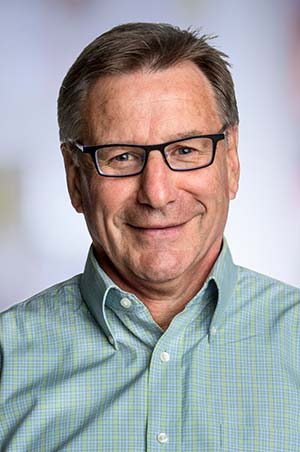Neoantigen specific CD4+ T cells that infiltrate human melanoma exist in diverse differentiation states and correlate with activation of CD8+ T cells, macrophages, and B cells
Authors : Joshua R. Veatch*, Sylvia Lee, Carolyn Shasha, Naina Singhi, Julia Szeto, Ata Moshiri, Teresa Kim, Kimberly Smythe, Matthew Fitzgibbon, Brenda Jesernig, Shailender Bhatia, Scott Tykodi, Evan Hall, David Byrd, John Thompson, A. McGarry Houghton, Evan Newell, Raphael Gottardo and Stanley R. Riddell
Tumor-antigen specific CD4+ T cells are important for efficacy of antibodies that block immune checkpoint proteins in mouse tumor models but their contributions to human tumor immunity are less well established. Indeed, most studies of human antitumor immunity have focused on CD8+ T cells that recognize tumor associated antigens. To evaluate potential contributions of CD4+ T cells, we used targeted single cell RNA sequencing and matching of T cell receptor sequences to identify neoantigen and viral antigen-specific CD4+ T cells, regulatory T cells, and bystander CD4+ T cells infiltrating primary human melanomas. CD4+ T cells specific for tumor antigens have a gene expression signature that is distinct from Tregs, bystander and T cells specific for viral antigens in melanoma. The tumor-reactive CD4+ T cells are defined by CXCL13 expression and can be subdivided into discrete subsets that express memory and T follicular helper markers, and those expressing cytolytic markers and interferon gamma. The frequency of CXCL13+ CD4+ T cells correlates with patient survival and with activation of macrophages, CD8+ T cells and maturation of B cells at the tumor site, suggesting key functional roles for CD4+ T cells in orchestrating the composition and functions of immune cells in the melanoma tumor microenvironment.

Dr. Riddell is a Member at the Fred Hutchinson Cancer Research Center, Professor, Department of Medicine at the University of Washington, and Distinguished Affiliate Professor at the Technical University of Munich. He is the Virginia Hobbs Charitable Trust Research Professor of the American Cancer Society. His work has focused on the development and clinical translation of T cell therapy for cancer.
